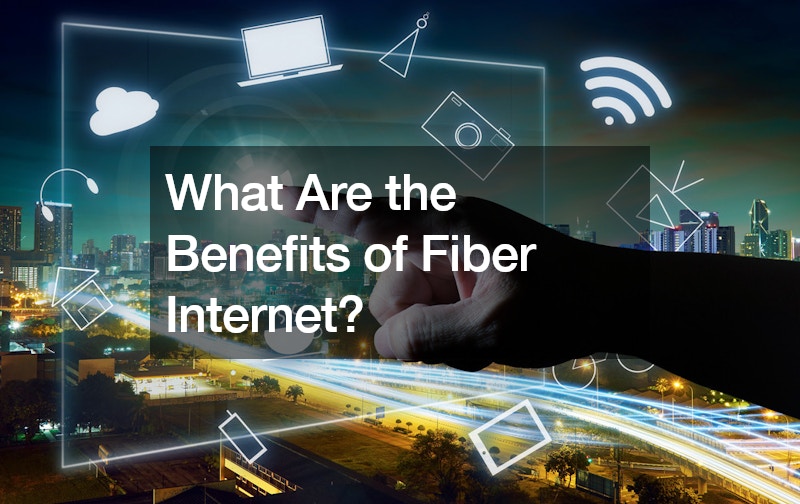
Fiber internet, also known as fiber-optic communications, represents a significant leap forward in the way data is transmitted, offering numerous benefits over traditional broadband technologies like DSL or cable. This advanced technology uses optical fibers to convert electrical signals carrying data into light, which is then transmitted over long distances at incredibly high speeds. The core advantages of fiber internet include unparalleled speed, reliability, bandwidth capacity, and overall efficiency, making it an increasingly popular choice for both residential and commercial users.
Unmatched Speeds
One of the most compelling benefits of fiber internet is its speed. Fiber-optic technology delivers data at speeds far exceeding those of traditional copper cables.
Whereas the typical broadband might offer speeds of up to 100 Mbps, fiber internet can provide gigabit speeds—1,000 Mbps or more. This is particularly beneficial for high-demand applications such as streaming high-definition video, playing online games with heavy graphics, and downloading large files swiftly. For businesses, these speeds mean faster access to cloud services, quicker file transfers, and smoother video conferencing.
Superior Reliability
Fiber internet is also more reliable than other forms of internet connections. Optical fibers are less susceptible to severe weather conditions and electromagnetic interference from nearby power lines or high-voltage electrical equipment, which can disrupt the connectivity in copper cables. Furthermore, fiber materials do not carry electric current, which makes them immune to many environmental factors that typically affect copper cables, such as corrosion or lightning strikes. This reliability ensures consistent connectivity crucial for essential services, such as remote healthcare, online education, and digital business operations.
Increased Bandwidth
Another significant advantage is the increased bandwidth availability with fiber-optic systems. Unlike traditional wires, fiber has a much higher capacity to carry large amounts of data. This is particularly important in an era where the number of connected devices per household or business is rapidly increasing. With fiber internet, users experience less speed degradation—even under high demand—ensuring smooth operation of multiple devices simultaneously.
Long-Term Cost Efficiency
While the initial setup for fiber internet might be higher than that of traditional broadband, the long-term benefits often outweigh these initial costs. Fiber networks typically require less maintenance than copper networks, which reduces the long-term cost for providers and, subsequently, for users. Additionally, the durability and reduced need for frequent repairs or upgrades make fiber a cost-effective choice over its lifespan.
Enhanced Security Features
From a security standpoint, fiber internet is a superior choice. The nature of fiber-optic transmission makes it incredibly difficult to intercept the data transmitted without physically cutting the fibers, which would cause the signal to disappear. This offers an inherent security advantage against data theft and cyber threats, which is a critical consideration for businesses handling sensitive information.
Watch the video above to learn more about the benefits of fiber internet in Bellevue, OH or another area!

